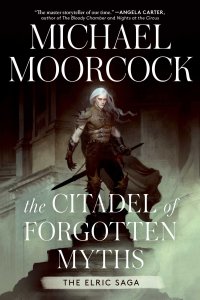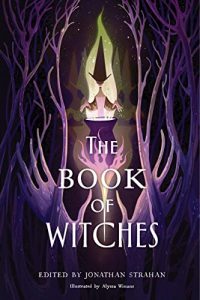Russell Letson reviews Charles Stross
 Charles Stross’s The Fuller Memorandum offers a melding of spy-intrigue and the fantastic that also occupies the borderland where two sides of Stross-the-writer’s personality overlap: the antic wit (in the Renaissance sense) and the darker dreamer. The world of the supernatural secret service nicknamed the Laundry is generated by a kind of programmer/engineer’s jeux-d’esprit foolery in which the cultures and attitudes of computing and of the British intelligence bureaucracy are mapped onto the nasty metaphysics of Lovecraftian necromancy and demonology. Thus science-fictional metaphors supply rationales for various traditional horrors without, um, sacrificing their nasty core of soul-eating, flesh-melting, insanity-inducing demonic possession and all its ichor-dripping kin.
Charles Stross’s The Fuller Memorandum offers a melding of spy-intrigue and the fantastic that also occupies the borderland where two sides of Stross-the-writer’s personality overlap: the antic wit (in the Renaissance sense) and the darker dreamer. The world of the supernatural secret service nicknamed the Laundry is generated by a kind of programmer/engineer’s jeux-d’esprit foolery in which the cultures and attitudes of computing and of the British intelligence bureaucracy are mapped onto the nasty metaphysics of Lovecraftian necromancy and demonology. Thus science-fictional metaphors supply rationales for various traditional horrors without, um, sacrificing their nasty core of soul-eating, flesh-melting, insanity-inducing demonic possession and all its ichor-dripping kin.
No our magic is computational. The realm of pure mathematics is very real indeed, and the… things… that cast shadows on the walls of Plato’s cave can sometimes be made to listen and pay attention if you point a loaded theorem at them. This is, however, a very dangerous process, because most of the shadow-casters are unclear on the distinction between pay attention and free buffet lunch here.
The Laundry stories are sometimes characterized as James-Bond-meets-Cthulhu, but Stross’s viewpoint intel operative, with the wink-wink nom-de-guerre of Bob Howard, is less a licensed-to-kill playboy than a harried desk-jockey who keeps getting sent out into the field, where (since the Cthulhu part is pretty apt) he encounters various Elder Gods, demons, and Eldritch Entities, along with their human minions and worshippers. The Laundry’s HQ is neither M’s paneled office nor Q’s high-tech weapons lab but ‘‘three floors of characterless sixties concrete piled up above a Woolworth’s and a couple of other boring high street stores like a bad perm on a grocer’s granny.’’ On the other hand, the sub-basement archive is staffed by zombies and the security system includes some very unpleasant wards and spells. Still, it remains a bureaucracy, with numbered forms, expense reports, impenetrable acronyms (even for the non-supernatural stuff), and a gimlet-eyed, iron-pants, mistress-of-all-regulations-and-procedures departmental manager.
The novel’s action follows that of the 2008 novelette ‘‘Down on the Farm’’ (first published and still available on line at Tor.com and collected in last year’s collection Wireless), in which we see what happens to Laundry personnel who get too caught up in (or by) their work. Now Bob finds himself involved with a particularly nasty cult of demon-worshippers; the nature and location of something code-named Teapot; the whereabouts of his mentor, the spookily ageless spook Angleton; and an apocalyptic scenario code-named CASE NIGHTMARE GREEN involving the Elder Gods, projected for the all-too-near future. Bob must navigate bureaucratic as well as supernatural terrors – attacks by various undead assassins and Forces and weekly committee meetings, a trip to the library (with those undead stacks clerks), and even a brush with the Auditors.
The Laundry stories offer a particular and peculiar kind of entertainment: on the one hand, very smart and adept comedy, and on the other genuine horror. The fun part includes homages of various kinds beyond the expected ones to Lovecraft and his ilk: to the late John M. Ford (‘‘Dr. Mike’’), The Prisoner, and thriller writer Anthony Price, to name three easy ones. Then there are 47 varieties of tech-nerd jokes, for example about the iPhone: ‘‘About the only smart phone that doesn’t stink like goose shit is the JesusPhone. But I’ve steadfastly refused to join the Cult of Jobs ever since I saw the happy-clappy revival tent launch.’’ And we eventually see why the jokes about keeping an inventory of office supplies, right down to paper clips, actually indicate more than bean-counter obsessive-compulsiveness. On the horror side – well, let’s just say that there’s plenty to gibber and sweat about, and Bob’s humor (and, presumably, Stross’s) is clearly a way of keeping at arm’s length various recognitions about the skull beneath the face of the universe. These are entertainments for uneasy times and, beneath the laughs, perhaps more serious than any of us wants to admit.








Pingback:Tweets that mention Locus Online Reviews » Russell Letson reviews Charles Stross -- Topsy.com